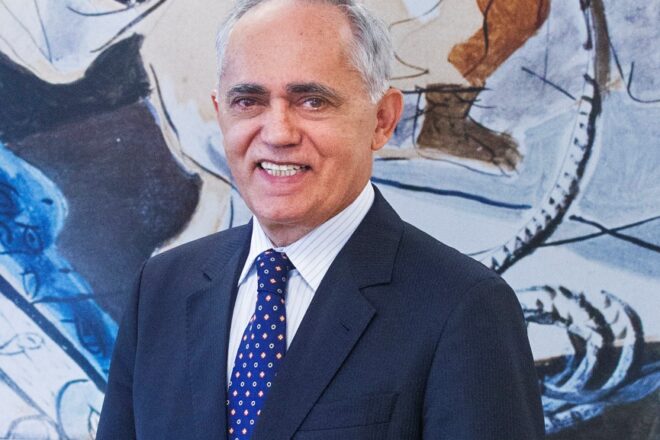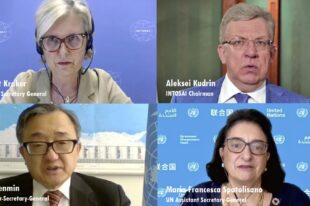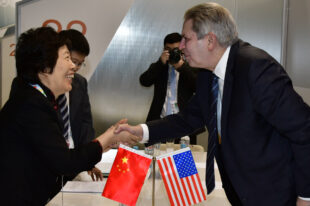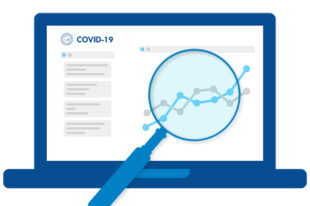Ready to Conquer Standard Setting Journey

by Minister Raimundo Carreiro, President of the Federal Court of Accounts of Brazil
As I undertake the challenging mission of chairing INTOSAI’s Professional Standards Committee (PSC), I am grateful for this opportunity to address the worldwide Supreme Audit Institution (SAI) community to discuss this new period of standard setting in public auditing. The 22nd INCOSAI inaugurated a new phase by approving the 2017-2022 Strategic Plan, authorizing the review of the current International Standards of Supreme Audit Institutions (ISSAI) Framework, adopting the “Due Process for the International Organization of Supreme Audit Institutions (INTOSAI) Framework of Professional Pronouncements” and creating the Forum for INTOSAI Professional Pronouncements (FIPP).
These accomplishments culminated the hard work of many people and institutions, including, notably, the SAI of Denmark, which preceded Brazil’s Federal Court of Accounts (TCU) as Chair of the PSC.
Now is the time to convert these accomplishments into further gains on various levels: in the quality of each individual standard and guideline and of the ISSAI Framework as a whole; in INTOSAI’s credibility and prestige as the government auditing standard setter; and, most importantly, in worldwide public auditing improvements resulting from the generalized implementation of standards by SAIs.
Achieving these gains, however, will depend on hard work, dedication and close cooperation among various INTOSAI entities. We have an arduous journey ahead, but we are fortunate to undertake it alongside the European Court of Auditors, our Vice-Chair and an institution of recognized excellence, which has already shown itself to be a strong partner. I am also heartened when I reflect on the tremendous contribution that our collaborative work can make to oversight institutions across the globe. In short, it is a privilege to participate in this crucial moment in INTOSAI.
The SAI community already enjoys a solid framework of professional standards and guidelines that are available to guide and enhance various areas of oversight work by auditing institutions. Headway is also being made on the immense challenge of ISSAI dissemination and implementation, thanks to a combination of initiatives within INTOSAI, including remarkable efforts by the INTOSAI Development Initiative (IDI). The ISSAI brand has won broad recognition among SAIs and external stakeholders.
At this stage in our standard setting journey, I believe our main challenges to be:
- Improving the planning of projects that relate to standard setting
- Honing the process for producing and approving standards—through the work of PSC subcommittees, various working groups and the FIPP—to help ensure quality and consistency
- Universalizing knowledge about ISSAIs and the capacity building initiatives to implement them
- Ensuring ISSAIs are SAIs’ preferred solution for standards
- Ensuring INTOSAI is seen as the primary international government audit standard-setting body
To meet these challenges successfully, we must continue to strengthen cooperation with the Capacity Building Committee (CBC) and Knowledge Sharing Committee (KSC) leadership, as has occurred in recent years.
While I tackle these important duties as PSC Chair, I must also undertake the complex task of guiding Brazil’s Federal Court of Accounts (TCU) in its mission to improve public administration for the benefit of Brazilian society. As President of the Court since January, one of the priorities I have established for my term—in line with the legitimate aspirations of countless Brazilian citizens—is fighting fraud and corruption. In pursuing this goal, we will strengthen inter-institutional partnerships and focus on building capacities among civil servants.
Fighting fraud and corruption is not a new endeavor for the SAI of Brazil. On the contrary, the TCU has worked relentlessly on this front, curbing mismanagement of public resources and improving governance of public agencies and policies. Thus, the Court already acts in two complementary fashions: preventing and correcting fraud and corruption. My goal, however, is to significantly increase the scope of these activities.
To this end, in addition to internal measures, we are looking outward, seeking partnerships with other Brazilian auditing institutions, as well as international organizations. We will count, once again, on international cooperation within INTOSAI to buttress our efforts. In this vein, the TCU has requested membership in the INTOSAI Working Group on the Fight Against Corruption and Money Laundering. Undoubtedly, we will make intensive use of ISSAI 5700 (Guideline for the Audit of Corruption Prevention) and other INTOSAI documents to underpin our work in fighting fraud and corruption.
In short, as President of the TCU, I intend to put into practice the ideal expressed by the INTOSAI motto: Experientia Mutua Omnibus Prodest.
Like so many other SAIs, the TCU offers its capacities to INTOSAI in areas in which it can contribute, and, in turn, receives from its invaluable knowledge and experience. At this particular juncture, the TCU will seek to contribute significantly to the standard setting system. We are greatly encouraged by the realization of how much auditing standards and guidelines can contribute to the work of SAIs, and, by extension, to good government worldwide.
In carrying out our mission at the helm of the PSC, we hope to count on the support of all of INTOSAI.





